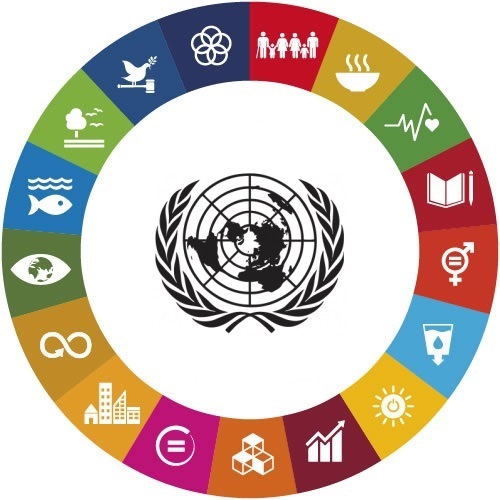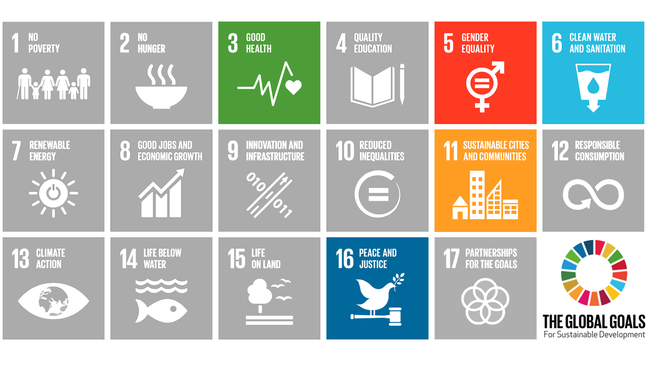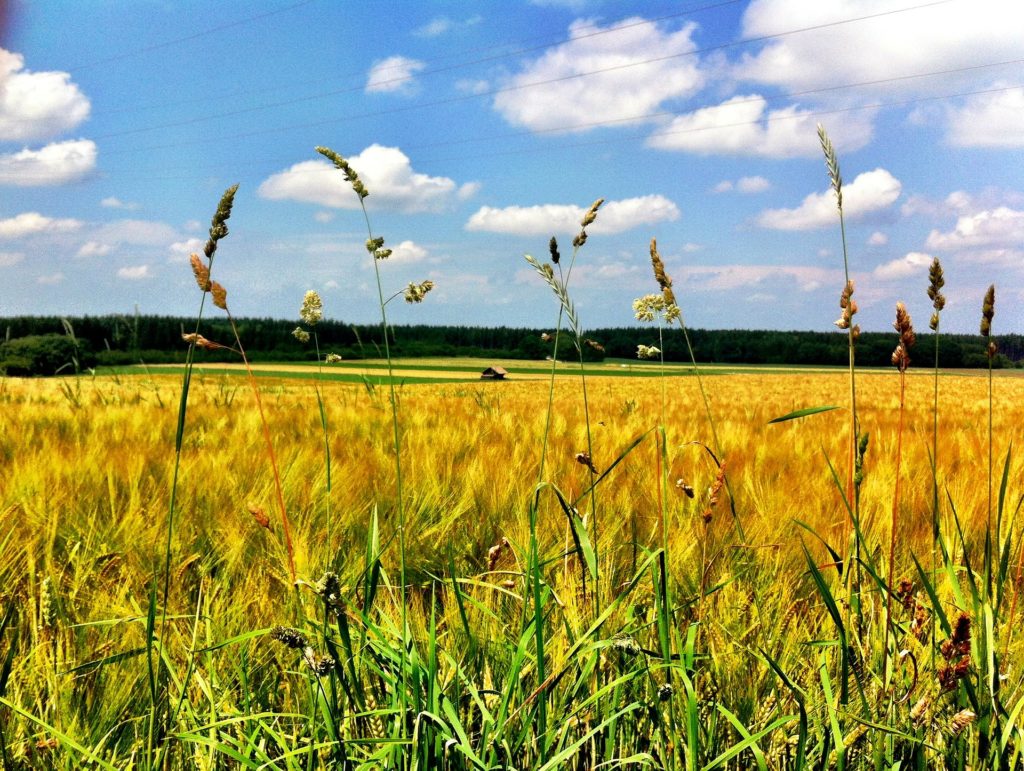Un’introduzione agli obiettivi di sviluppo sostenibile

“Non abbiamo un piano B, perché non c’è un pianeta B”
– Ban Ki-moon, UN Secretary General 2007–2016
Il 25 settembre 2015, 193 paesi si sono riuniti e hanno condiviso di affrontare le diseguaglianze, la povertà e la giustizia climatica mondiale. Essi miravano a raggiungere quest’obiettivo, lavorando insieme su un’agenda e mettendo insieme 17 obiettivi per lo sviluppo sostenibile.
Questi obiettivi sono conosciuti come SDGs oppure Sustainable Development Goals (obiettivi di sviluppo sostenibile). L’obiettivo è quello di coprire tutte le aree della vita umana e argomenti connessi come povertà, buona salute, istruzione di qualità, uguaglianza di genere, vita sulla terra e vita sott’acqua.

Ma cosa significa sostenibilità?
Se qualcosa è sostenibile, significa che è capace di essere mantenuta e difesa. Significa che possiamo tenere qualcosa ad un certo livello. Ma come facciamo a creare e mantenere un certo livello di istruzione per tutti? Come facciamo a sapere se siamo capaci di creare e mantenere l’uguaglianza di genere? Se parliamo di mantenere qualcosa come la pace, sappiamo di volerla sostenere e difendere, ma come sappiamo veramente se la stiamo mantenendo ad un certo livello?
Sviluppo sostenibile significa:
- Sviluppo che incontra le necessità del presente, senza compromettere l’abilità delle generazioni future di raggiungere i propri bisogni.
- Lavorare verso un future sicuro e stabile per le persone e il pianeta, adesso e nel futuro.
- Pensare alle condizioni economiche, sociali e ambientali.
Questi tre elementi non possono esistere separatamente. Essi sono armoniosi e interconnessi. Debbono coinvolgere tutte le persone e i gruppi nella società. I Governi possono lavorare verso la sostenibilità ma anche le imprese, la società civile e tutti noi come cittadini.

Come sappiamo se ci stiamo comportando in maniera sostenibile?
Gli obiettivi di sviluppo sostenibile non sono in alcun modo legalmente vincolanti, non vi sono obblighi per i paesi di essere sostenibili oppure di preservare le risorse per la future generazioni. Si opera invece in un sistema di inviti ad un comportamento responsabile. Ci si aspetta che le azioni di ciascuno siano portate avanti tenendo conto della sostenibilità e all’interno di un quadro nazionale mirato a raggiungere i 17 obiettivi.
Gli obiettivi forniscono un compasso per le nostre azioni e ci guidano ad assumere comportamenti migliori. Il nostro pianeta terra, che è pianeta mare, necessita di cure e attenzioni. Non è facile per tutti noi cercare di portare avanti comportamenti in linea con la sostenibilità a 360° e per tale motivi dovremmo pensare ad un importante salto di paradigma se vogliamo lasciare un pianeta sano alle prossime generazioni.
Note sugli obiettivi di sviluppo sostenibile e riferimenti:
The 2030 Agenda for Sustainable Development, adopted by all United Nations Member States in 2015, provides a shared blueprint for peace and prosperity for people and the planet, now and into the future. At its heart are the 17 Sustainable Development Goals (SDGs), which are an urgent call for action by all countries – developed and developing – in a global partnership. They recognize that ending poverty and other deprivations must go hand-in-hand with strategies that improve health and education, reduce inequality, and spur economic growth – all while tackling climate change and working to preserve our oceans and forests.
The SDGs build on decades of work by countries and the UN, including the UN Department of Economic and Social Affairs
- In June 1992, at the Earth Summit in Rio de Janeiro, Brazil, more than 178 countries adopted Agenda 21, a comprehensive plan of action to build a global partnership for sustainable development to improve human lives and protect the environment.
- Member States unanimously adopted the Millennium Declaration at the Millennium Summit in September 2000 at UN Headquarters in New York. The Summit led to the elaboration of eight Millennium Development Goals (MDGs) to reduce extreme poverty by 2015.
- The Johannesburg Declaration on Sustainable Development and the Plan of Implementation, adopted at the World Summit on Sustainable Development in South Africa in 2002, reaffirmed the global community’s commitments to poverty eradication and the environment, and built on Agenda 21 and the Millennium Declaration by including more emphasis on multilateral partnerships.
- At the United Nations Conference on Sustainable Development (Rio+20) in Rio de Janeiro, Brazil, in June 2012, Member States adopted the outcome document “The Future We Want”in which they decided, inter alia, to launch a process to develop a set of SDGs to build upon the MDGs and to establish the UN High-level Political Forum on Sustainable Development. The Rio +20 outcome also contained other measures for implementing sustainable development, including mandates for future programmes of work in development financing, small island developing states and more.
- In 2013, the General Assembly set up a 30-member Open Working Group to develop a proposal on the SDGs.
- In January 2015, the General Assembly began the negotiation process on the post-2015 development agenda. The process culminated in the subsequent adoption of the 2030 Agenda for Sustainable Development, with 17 SDGs at its core, at the UN Sustainable Development Summit in September 2015.
- 2015 was a landmark year for multilateralism and international policy shaping, with the adoption of several major agreements:
- Sendai Framework for Disaster Risk Reduction (March 2015)
- Addis Ababa Action Agenda on Financing for Development (July 2015)
- Transforming our world: the 2030 Agenda for Sustainable Development with its 17 SDGs was adopted at the UN Sustainable Development Summit in New York in September 2015.
- Paris Agreement on Climate Change (December 2015)
- Now, the annual High-level Political Forum on Sustainable Development serves as the central UN platform for the follow-up and review of the SDGs.
Today, the Division for Sustainable Development Goals (DSDG) in the United Nations Department of Economic and Social Affairs (UNDESA) provides substantive support and capacity-building for the SDGs and their related thematic issues, including water, energy, climate, oceans, urbanization,transport, science and technology, the Global Sustainable Development Report (GSDR), partnerships and Small Island Developing States. DSDG plays a key role in the evaluation of UN systemwide implementation of the 2030 Agenda and on advocacy and outreach activities relating to the SDGs. In order to make the 2030 Agenda a reality, broad ownership of the SDGs must translate into a strong commitment by all stakeholders to implement the global goals. DSDG aims to help facilitate this engagement.
